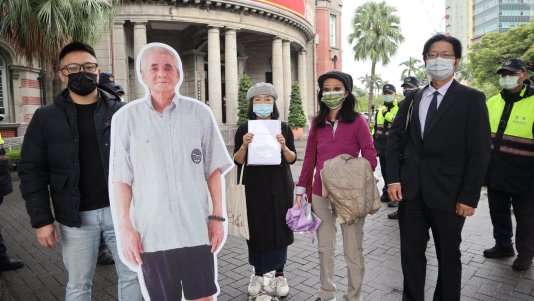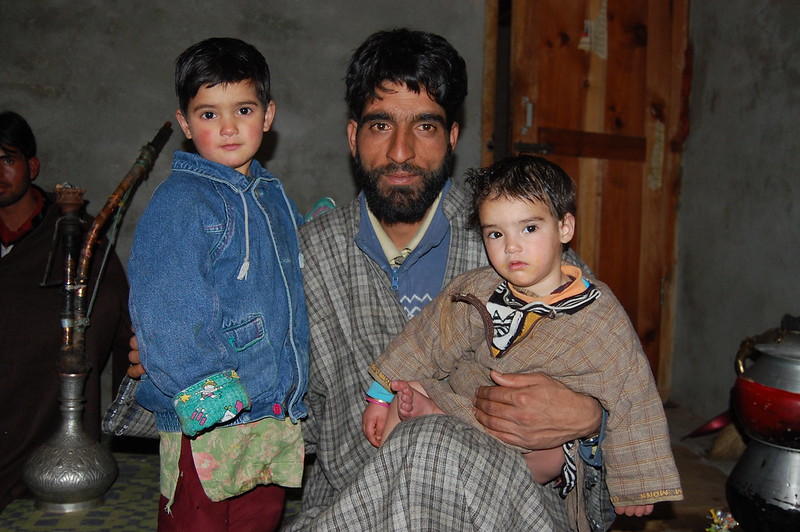- About
- Topics
- Picks
- Audio
- Story
- In-Depth
- Opinion
- News
- Donate
-
Signup for our newsletterOur Editors' Best Picks.Send
Read, Debate: Engage.
| November 11, 2022 | |
|---|---|
| topic: | Death Penalty |
| tags: | #Taiwan, #death penalty, #capital punishment, #abolition, #human rights |
| located: | Taiwan |
| by: | Sarah Li |
It all began in August, when two police officers on duty were killed by a fugitive criminal in Taiwan.
The news created shockwaves, leading many to call for the killer's execution. In one video interview, the victim’s sister swore in a hoarse voice, "F*** the death penalty abolition groups! Go to the 18th level of hell!"
Since then, Hsin-Yi Lin, executive director of the Taiwan Alliance to End the Death Penalty (TAEDP), has been asking her colleagues to keep the office door locked, even during business hours, and to never stay alone there at night. She said they have become the target of ire and potential violence following the double homicide.
"Whenever there is a serious crime, we end up being attacked and targeted," Lin told FairPlanet.
Following the incident, the NGO has been flooded with phone calls attacking its cause with comments like "get out of our country" or "stop the crocodile tears." A banner reading "What should be abolished is the rotten abolition group" was seen hanging on the wall outside TAEDP's office.
Under Taiwanese law, execution can be imposed for murder, treason, serious cases of robbery, rape and kidnapping, among other charges.
A poll conducted by a local educational foundation in September showed that nearly 87 percent of Taiwanese people oppose the abolition of capital punishment - a figure similar to the ones recorded in previous years. And with seemingly consistent public support, the death penalty has been legal in Taiwan for decades.
Since the 1990s, the island nation has undergone a series of democratic transformations, yet more than 400 people have been executed.
In 2009, the Taiwanese government incorporated two UN human rights treaties into domestic laws: the Covenant on Civil and Political Rights (ICCPR) and the International Covenant on Economic, Social and Cultural Rights (ICESCR). Both covenants include protection for the human right to life.
Yet, since the early 2000s, the Taiwanese government carried out 77 executions, all for murder charges.
Back in 2000, one of the two major political parties in Taiwan, the Democratic Progressive Party, pledged to gradually abolish the death penalty. But the suspension on executions only lasted from 2006 to 2009. After the opposing party, Kuomintang, seized power and resumed executions, four inmates were put to death in 2010.
Such sentiment shows no signs of abating: several politicians expressed their support of the death penalty in the recent case involving killed police officers. A statement by the President of Legislative Yuan, Si-Kun You, read: "I am against the death penalty, but in this case, it must be imposed."
This rhetoric renewed people’s opposition to TAEDP. One of the leading Taiwanese news outlets, China Times, dug up a 2010 case in which TAEDP was accused of filing a constitutional interpretation claim for a death row inmate without his authorisation. 12 years ago, however, TAEDP had already written to the media to clarify that it had obtained permission from the inmate's mother, which is a legal act under local law. Even the prosecutor found no basis to file the case.
"What concerned me is the death row inmate was also convicted for instigating a shooting of a police officer," Lin said. The prisoner, Xin-Fu Wang, who was arrested in 2006, is now the oldest death row inmate in Taiwan.
The abolition group has been defending his innocence and trying to prevent a wrongful execution. The fact that Lin’s organisation is helping a prisoner who also allegedly killed a police officer received attention again after the recent incident.
Lin was afraid that the growing public sentiment against abolition will tank the NGO's efforts and, more seriously, lead to the execution of Wang.
"It’s not the worst situation we have experienced," added Lin , who has led TAEDP for the last 15 years. "But this time, the media and politicians made the issue seem more controversial."
Public opinion in Taiwan seems to overwhelmingly favour maintaining capital punishment. However, Lin said that the high level of support for executions is too often a simplified response to the question of either supporting the death penalty or not, leaving other options out of the discourse.
She insisted that any related poll is only plausible when respondents are made aware of the complex issues that surround the death penalty.
In 2014, TAEDP cooperated with Academia Sinica to study public opinion on the issue in depth. The respondents were given a series of questions that require more careful consideration and touch on knowledge of the system, confidence in decision-makers and alternative punishments.
In the end, the opposition rate decreased to around 50 percent. Unlike the public perceptions the media has long been portraying, Lin found citizens to be rather approachable and willing to learn more through open dialogue. "The biggest obstacle is the government," she said.
She added, however, that the elimination of capital punishment would not be the end of the story. Instead, abolition should go along with substitutes and supporting measures such as life imprisonment with no parole or with the convict working to earn money that will be used to compensate the victims or their families.
Politicians often name public interest as the basis for their support for capital punishment, and argue that they are obligated to factor in public sentiment as democratic leaders.
But some experts argue that penal policy should not be determined by "popular sentiment alone" in parliamentary democracies, as a 2009 study showed. "Countries that have abolished the death penalty have often done so in spite of public opinion, not in response to it," the study's author writes.
In East Asia, where most countries still practice the death penalty, South Korea stands out as one of the few exceptions.
In 1998, when the country peacefully transferred itself into a democracy, it announced a moratorium on executions. Since then, no death penalty has taken place despite strong public support for it.
A 2007 poll showed that 72 percent of South Koreans favoured executions for convicted murderers. Executions in South Korea are widely believed to be abolished de facto.
The study also found that, although grassroots activism contributed to raising awareness of wrongful executions, the key to South Korea’s continual moratorium is its political leadership.
As the country became a democracy, the government saw "the right-to-life principle" as "essential part of the national self-image" and was eager to meet the international human rights standard.
TAEDP’s current priority is prompting government officials to take action to solve the root of the problem.
The NGO has carried out interviews with prisoners to offer legislators constructive policy suggestions. Through meetings with each of the 38 death row inmates in Taiwan, the organisation hopes to gain a deeper understanding of their backgrounds as well as insight into how to improve the existing rehabilitation system.
The more Lin learned about the prisoners, the more she wanted to help.
"I do see changes in these inmates," she said. "Hearing their stories made me realise how a small mistake in an early life stage can lead [one] to [commit] a serious crime if the social system fails to respond properly."
Commenting on the public outrage over her advocacy work, Lin said: "Many men even threatened to rape me or dismember my body. But while staying vigilant about the situation, I also can’t let fear handicap me."
"If you keep focusing on these hostile comments, you will hardly be able to move forward," she said.



By copying the embed code below, you agree to adhere to our republishing guidelines.
